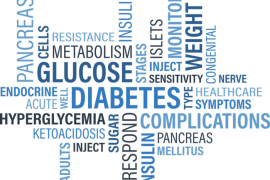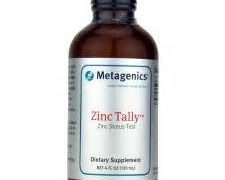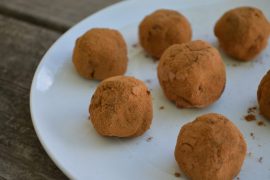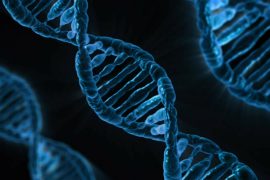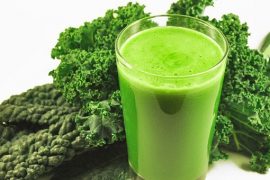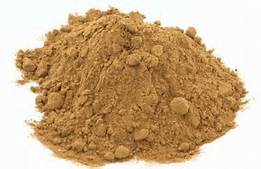With over 250 million people suffering from this disease worldwide, autoimmunity is becoming a prevalent and concerning health problem. Autoimmunity is when the immune system becomes uncoordinated and begins attacking itself. I have worked with many autoimmunity cases and have found that certain nutrient deficiencies are almost always at play. In this article, I discuss why I think these deficiencies are the 5 key nutrients to heal autoimmune disease.
My desire to help those with autoimmunity comes from a history of personal health challenges that were rooted in my digestive health. After overcoming these health challenges, being on the other side, I realize just how debilitating conditions like autoimmunity can be. I find many similarities between the presence of these conditions including lack of key nutrients in the diet. I believe these 5 to be critical to address in the case of autoimmunity.
 1. Vitamin D
1. Vitamin D
Vitamin D is arguably one of the most powerful nutrients responsible for modulating and coordinating the immune system. In autoimmune disorders, the immune system has a hard time differentiating self from non-self (foreign invaders). Vitamin D helps the immune system make this important distinction (1).
Vitamin D deficiency is vastly common in our society due to sunscreen use and low amounts of sun exposure. On top of this, the average diet is severely lacking dietary sources of Vitamin D such as organ meats and certain fish.
Boosting Vitamin D
Sunlight is by far and away the most important factor in optimizing your vitamin D levels. Not only does skin exposure to sunlight help produce vitamin D in its sulfated form, which may have unique benefits to the body in addition to supplemental vitamin D.
Our ancestors frequently ate organ meats in their diets, such as liver, that were dense sources of vitamin D. Other great sources of dietary Vitamin D are wild fish like sockeye salmon and sardines.
To get Vitamin D levels into the therapeutic range of 60-100 nmol/L, I typically will recommend additional supplementation along with Vitamin K2. For this I will use D3/K2 Power which contains 10,000 IU along with vitamin K2 and I get great results with this.
I will also sometimes use D3/K2 drops for more targeted dosing because it contains 1000IU vitamin D3 per serving. I recommend up to 2000IU for every 25 lbs. of bodyweight in cases of autoimmunity.
2. Zinc
Zinc is another critical nutrient for healthy immune system function. Proper zinc levels help support the thymus gland and the formation of T helper cells, which are vital for coordination of the immune system (2).
Studies have shown that chronically low zinc levels can result in atrophy of the thymus gland which leads to poor T helper cell maturation and an imbalance in the Th1 and Th2 branches of the immune system. It is this immune imbalance that contributes to chronic inflammation and autoimmunity.
Boosting Zinc Intake
The RDA for adult zinc intake is around 12mg per day, but I typically see the best results with an intake of 30-60mg. The top dietary source of zinc is by far oysters with about 29.75 mg per 3.5 ounce serving. The next best would be sprouted pumpkin seeds which have about 7.81 mg of zinc per 3.5 ounce serving. Finally, liver and pasture-raised lamb and beef are other great sources of dietary zinc.
While there are some great food sources of zinc, I usually recommend supplementing with about 20-40mg zinc glycinate per day in cases of autoimmunity. I like zinc glycinate specifically because it is very absorbable while the glycine molecule provides additional anti-inflammatory benefits.
You can find my favorite form here. I recommend supplementing with 20mg once or twice daily with meals to ensure proper absorption.
3. Glutathione
Glutathione is the most powerful antioxidant in the human body. It acts as an antioxidant on its own while also regulating other antioxidants in the body. In addition to antioxidant benefits, glutathione supports healthy detoxification. These actions will help lower inflammation drastically, which is a major factor in autoimmune conditions.
Glutathione has also been identified as playing a major role in white blood cell function and immune system regulation. For these reasons, glutathione has been identified a key nutrient in autoimmunity (3).
Glutathione support should be a part of every autoimmune support protocol.
Boosting Glutathione
Boosting glutathione to optimal levels comes down to three things: diet, lifestyle, and supplementation.
My top foods for boosting glutathione are non-denatured grass-fed whey protein, organ meats, sprouts, sulfurous foods (garlic, onions, cruciferous veggies), as well as herbs like turmeric, ginger, and milk thistle. These foods provide the building blocks for glutathione production in the body.
Next, there are several lifestyle factors that affect glutathione production. These include things like getting good sleep, adequate exercise, healthy sun exposure, and avoiding environmental toxins.
In terms of supplementation, there are things like selenium, N-acetyl Cysteine (NAC), and Alpha Lipoic Acid (ALA) which have all been shown to boost glutathione production in the body. I make my own supplement containing these powerful glutathione-boosting nutrients called Brain Supercharge. In many tough cases however, it is possible that the body has an inhibited ability to make its own glutathione. In these cases, I will use an acetylated glutathione supplement.
Pure glutathione is destroyed by digestion while the acetylated form does a much better job at passing through the digestive tract and exerting its beneficial effects.
4. Omega 3 Fatty Acids
Omega 3 fatty acids play a very important role in autoimmunity. I find that in most cases of autoimmunity, there is a significant imbalance of fatty acids in the body.
In the standard American diet, there is a high consumption of omega 6 fats from processed oils while omega 3 fatty acids are virtually absent. While all omega 6 fatty acids are not necessarily bad from the right sources, it’s important to increase omega 3 consumption to create a balanced ratio in the body.
An elevated omega 6 level relative to omega 3 is highly associated with the kind of systemic inflammation that is indicated in most autoimmune disorders (4).
Another really important dietary aspect to focus on is getting healthy fats in general. The Standard American Diet is full of problematic fat sources that are highly inflammatory. The following graphic is a good summary of which fats are best to include in your diet.
Boosting Omega-3 Levels
When it comes to boosting your omega 3 levels there are really 2 ways to do this, through omega 3-rich foods and with a high-quality supplement.
I really like to emphasize focusing on DHA and EPA omega 3’s because they have the most profound impact on the healing from autoimmunity. My top food sources for these fatty acids are wild Alaskan sockeye salmon, sardines, and anchovies. These are my top choices because the high omega 3 content without many of the heavy metal concerns of other fish.
For supplementation of omega 3, I recommend a purified fish oil from smaller fish such as sardines and anchovies. My favorite fish oil brand is Nordic Naturals because they purify their oil and third party test to ensure the absence of mercury.
In more advanced cases, such as with autoimmunity, I have found this Pro Omega CRP fish oil extremely helpful. It contains curcumin extract, NAC, and glutathione to provide additional anti-inflammatory benefits.
5. Probiotics
Another huge common denominator I find with my autoimmune patients is that they almost always have some kind of bacterial imbalance in the gut. Having a healthy bacterial balance is key to having a healthy digestive tract and proper immune function. Dysbiosis is also heavily associated with inflammation that can directly promote autoimmunity.
The microbiome connection to autoimmunity is even being investigated for clinical treatment of autoimmunity (5).
Unfortunately, modern day we have many things that really destroy the good bacteria in our gut. These are things like municipal tap water, pesticides in crops, artificial sweeteners, antibiotics, processed foods, alcohol, and the list goes on. So the first priority is to really work on getting this microbiome destroying toxins out of our lives, then to repopulate the gut with healthy bacteria.
Incorporating Probiotics
Probiotics can be delicate in autoimmune cases because I find that many of my patients can be pretty reactive to many foods. This is why I recommend starting with a supplemental probiotic over fermented foods.
For these cases I really like to start with a broad-spectrum probiotic like Prescript-Assist because it works really well for setting a solid foundation of microbiota in the gut. This probiotic can be used for 1-3 months before cycling to a another lactic-acid based probiotic like my ProbioCharge.
I see best results when cycling probiotics every 1-3 months as it helps maintain a diverse microbiome full of many different strains of good bacteria.
About the author:
 Dr. David Jockers is a Maximized Living doctor, functional nutritionist, corrective care chiropractor, exercise physiologist, and certified strength and conditioning specialist. His mission is to inspire and empower as many people as possible to reach their full health potential.
Dr. David Jockers is a Maximized Living doctor, functional nutritionist, corrective care chiropractor, exercise physiologist, and certified strength and conditioning specialist. His mission is to inspire and empower as many people as possible to reach their full health potential.
He currently owns and operates Exodus Health Center in Kennesaw, Georgia. He is also the author of the best-selling book “SuperCharge Your Brain†the complete guide to radically improve your mood, memory and mindset.
This article is shared with permission from our friends at Dr. Jockers .








